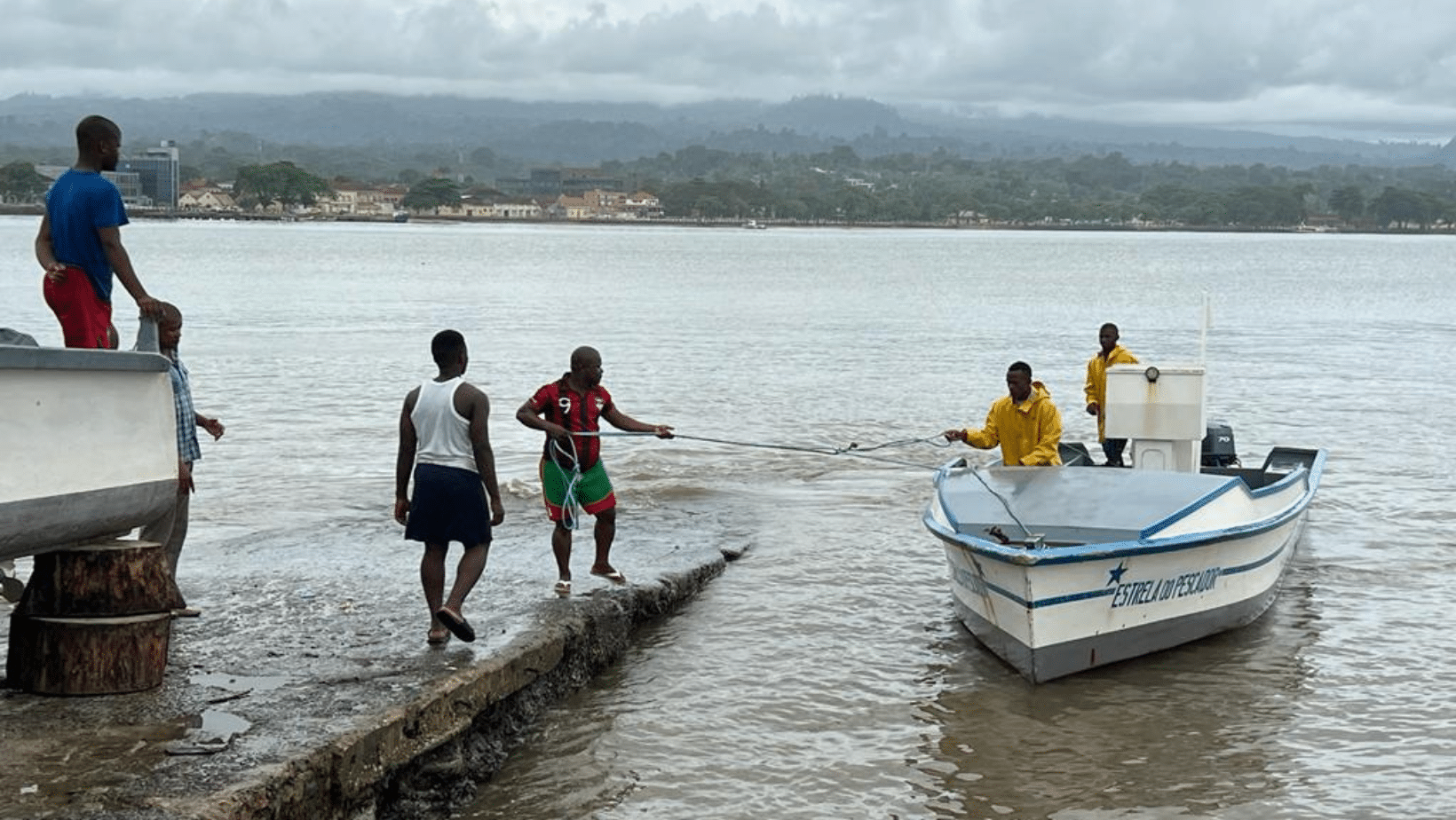17 July 2023 – The United Nations Industrial Development Organisation (UNIDO) has taken a step forward in the development of the first floating Ocean Thermal Energy Conversion (OTEC) platform in São Tomé and Príncipe. The contract for an Environmental and Social Impact Assessment (ESIA) Scoping Report was signed at the beginning of July, with the Lisbon-based engineering consultancy AQUALOGUS Engenharia e Ambiente Lda. This will guide the final design and requirements of the ESIA, enabling any environmental and social impacts to be identified and addressed, securing the OTEC installation and operations.
The UNIDO support is provided in the context of the Green Climate Fund (GCF) financed project Building institutional capacity for a renewable energy and energy efficiency investment programme for São Tomé and Principe. The assignment has the objective of safeguarding Dominique, the First-Of-A-Kind 1.5 MW floating OTEC platform, as there is currently a small number of OTEC plants globally (USA, Japan, Korea, for example). This is the first time a floating OTEC platform is being developed in a Small Island Developing States (SIDS) and Least Developed Country (LDC).
The learnings from the ESIA in São Tomé and Príncipe will be disseminated through the Global Network of Regional Sustainable Energy Centers (GN-SEC), coordinated by UNIDO, benefiting future OTEC projects. The Scoping Report consists of reviewing previous preliminary studies and update data collection, as well as technical papers and existing protocols, standard procedures and quality standards to provide definitions for the full design of the ESIA. The work will also be executed with local experts contributing to significant knowledge and technology transfer.
Dominique is being developed by the UK-based company Global OTEC and supported by SIDS DOCK, UNIDO and the GN-SEC. It is expected to be deployed in 2025 in São Tomé and Príncipe, located off the West coast of Africa, in the Gulf of Guinea, and offers the potential to be upscaled to 10 MW during the second phase. The project will contribute towards achieving several UN Sustainable Development Goals as well as undercutting the current levelised cost of electricity (LCOE) by a significant margin enabled by concessionary financing supported by UNIDO. “Under the Blue Ocean economy aspect, ocean energy can reduce tropical island nations’ long-term energy costs, generate employment, reduce trade imbalances from fuel imports and face the challenges arising from climate change. This project is not just important for São Tomé and Príncipe but has high potential for replication across other SIDS”, says Martin Lugmayr, from UNIDO.
The efforts are part of the Global Ocean Energy Alliance (GLOEA), launched by UNIDO, SIDS DOCK and other partners at the UN Ocean Conference in Lisbon, Portugal, in 2022. São Tomé and Príncipe, a pioneering SIDS, took the lead and the risk in demonstrating the commercialisation of OTEC in SIDS, which is proving to be the shining example to the rest of the world of how diesel fuel imports can be replaced with clean baseload energy from the ocean. This will be a starting point and the catalyst for a whole portfolio of OTEC projects around the world, with needs for ocean energy already identified in countries such as Antigua and Barbuda, Belize, Fiji, Grenada, and Tonga, among others. “The GLOEA has highlighted 700 MW of OTEC projects which are required urgently. Our first-of-a-kind platform de-risks this floating technology for infrastructure investors and will accelerate the technologies rollout through our standardised, modular systems”, highlights Global OTEC Founder and CEO, Dan Grech.
In June, Global OTEC was awarded Approval in Principle (AiP) for the project by Lloyd’s Register (LR), which means Dominique meets the necessary requirements for providing a structural basis for the OTEC technology implementation. This followed on the heels of a Certificate of Approval for the methodology of installation of a Cold-Water Riser, provided in April, by the Marine Warranty Surveyor company, ABL Group. Dominique’s design is set to overcome the technical challenges faced by OTEC installations in the past, and the ESIA Scoping Report will further safeguard Dominique.
The 160,000 km2 exclusive economic zone (EEZ) around São Tomé and Príncipe is an untapped solar heat battery, which OTEC platforms could harness to supply carbon-free, baseload power. An OTEC plant can generate electricity at a load factor of 95% throughout the year. This ocean energy project will contribute to the National Renewable Energy Action Plan of the island state, aiming at a renewable energy penetration of 70% in the electricity mix by 2030, mainly based on solar PV and small hydropower. OTEC is now perceived as an attractive means to replace baseload diesel and balance out daily or seasonal fluctuations of other renewable sources.
About AQUALOGUS
Established in 1996, AQUALOGUS has vast experience in the development of studies and projects in the fields of water resources, hydraulic engineering works and the environment, with a particular emphasis on renewable energies. “To AQUALOGUS, this process presents a really unique opportunity, both from a technical perspective, since we will be able to delve in an innovative technology and inevitably learn something new, and also from a sustainability approach where we always try to put forward our expertise and be as useful as possible to enhance the resilience, autonomy and environmental performance of countries such as São Tomé and Príncipe”, says João Almeida, Project Manager and Development Director at AQUALOGUS.
About Global OTEC
Global OTEC is a UK-based company set up to accelerate the commercialisation of a floating OTEC technology to develop zero-carbon, baseload, clean energy sources that achieve maximum impact in empowering SIDS, Least Developing Countries (LDCs) and Coastal Nations with energy security whilst helping the Earth reduce greenhouse gas emissions and eventually eliminate total dependence on fossil fuel.

